Professional Organiser Natalie Jane of Be Organised shares her top 10 tips for a clutter-free home just in time for spring cleaning season
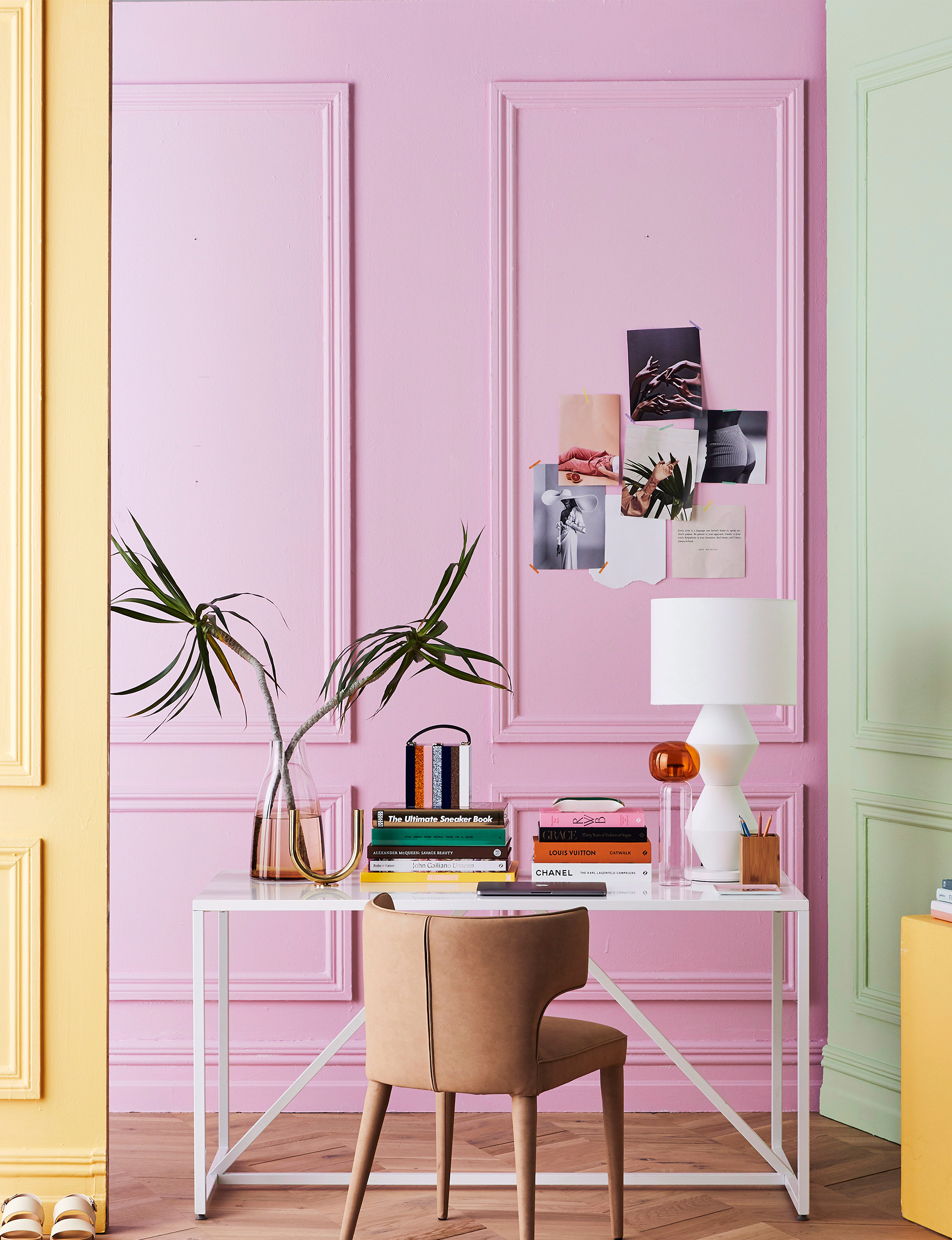
Keeping our homes organised and free of clutter is a struggle for many of us. Creating good habits is the key to having an organised home so you can relax and enjoy it rather than feeling overwhelmed by mountains of paper, wardrobes full of abandoned toys and the mess of everyday life.
These 10 bulletproof habits are tried and tested by me and, if you can put them in place and keep practising them, they’ll help you calm your clutter once and for all.
1. Make your bed every day
This should be one of the first tasks you complete each morning. If you manage this one, you’ll find it leads to other good habits and sets the tone for the entire day. Think about how peaceful a hotel room feels when you walk into it; you can create that feeling every day by cultivating this habit.
2. Don’t put it down, put it away
Items should live as close to their point of use as possible and be stored in a way that suits the natural flow of your household. Once everything has a place, the next step is to practise putting it back as soon as you have finished with it. If you get busy in the moment and are not able to put the item back straight away, it’s important to remember to go back and put it away as soon as you can. If you can embed it, this habit will save you lots of time in the long run.
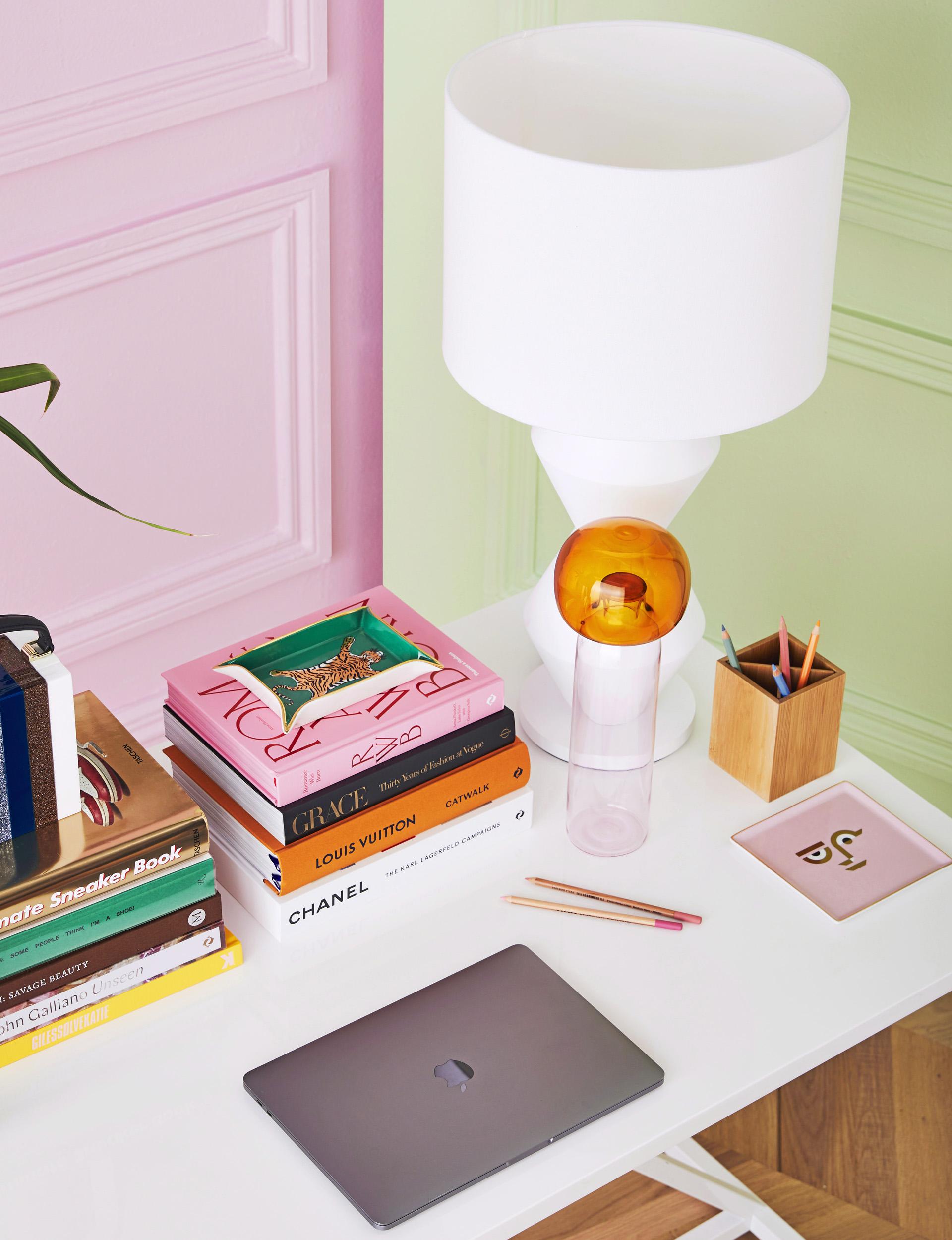
3. Keep surfaces free of clutter
Flat surfaces become prime spaces to dump stuff. Create homes for your common culprits such as bags, car keys and coats and practise putting these things in their proper places. Also try styling surfaces with attractive arrangements so you’re more invested in keeping them clear.
By taking a moment to ask yourself ‘Will this take less than a minute?’ before you walk away from an undone task, you’ll find it gets easier and easier to stay on top of small jobs. By taking care of one-minute tasks such as answering an email, putting old tins in the recycling bin and restocking the toilet paper, you stop all those little jobs from building up into an overwhelming mental block.
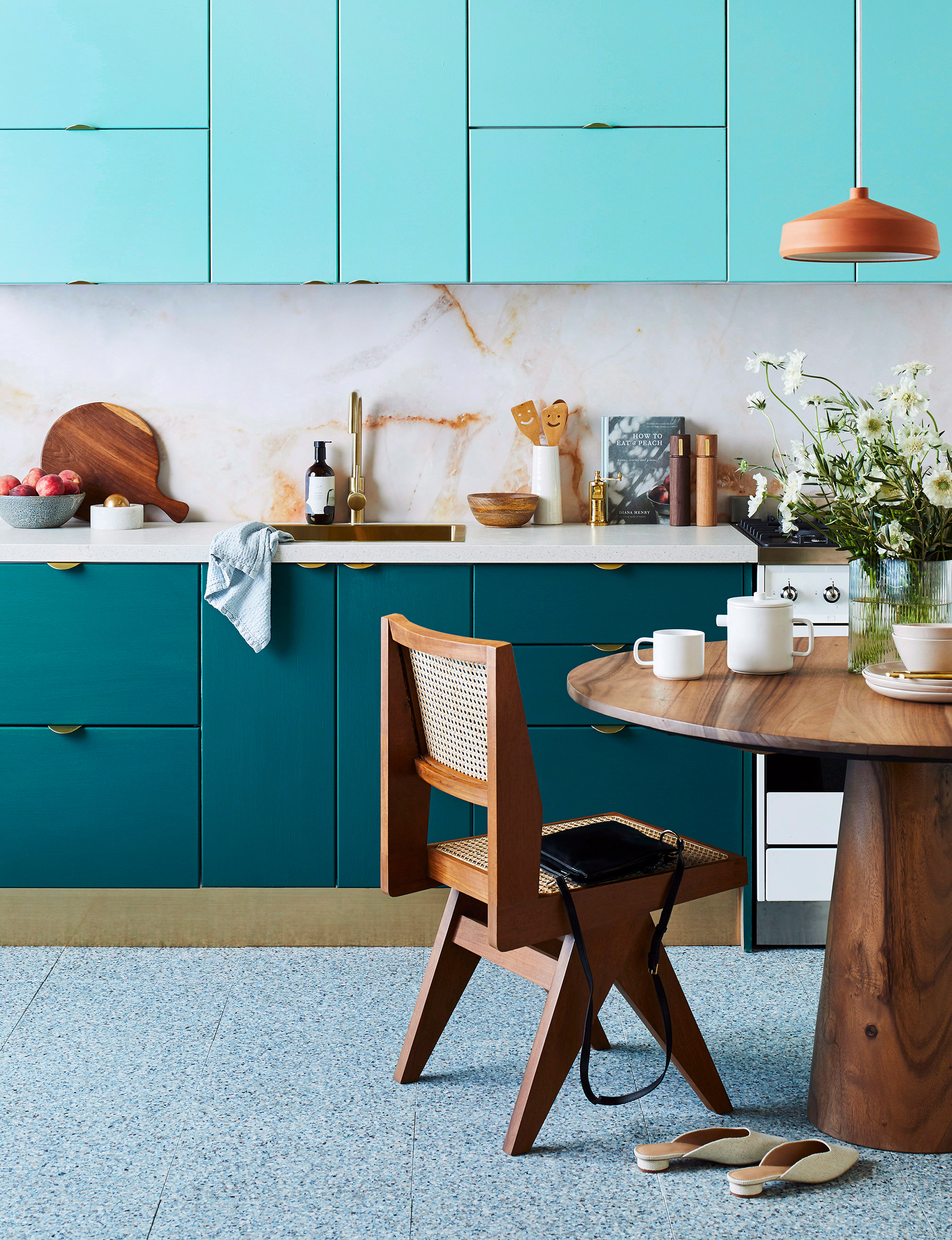
4. If it takes less than a minute… do it!
By taking a moment to ask yourself ‘Will this take less than a minute?’ before you walk away from an undone task, you’ll find it gets easier and easier to stay on top of small jobs. By taking care of one-minute tasks such as answering an email, putting old tins in the recycling bin and restocking the toilet paper, you stop all those little jobs from building up into an overwhelming mental block.
- Repel clutter by styling surfaces or areas that attract stuff.
- Allocate every family member a hook near the front door.
- Find a home for even the smallest items such as drawing pins.
- Plan a reward for a week free from clutter, like a pizza night.
5. Sorting season
Decluttering needs to happen regularly. Keep only the things you love and use and try to eliminate the ‘I might need it one day’ items. Get into the habit of scheduling seasonal, or at least annual, decluttering sessions to keep your stuff in check and help your home feel like a refuge from the busy world outside.
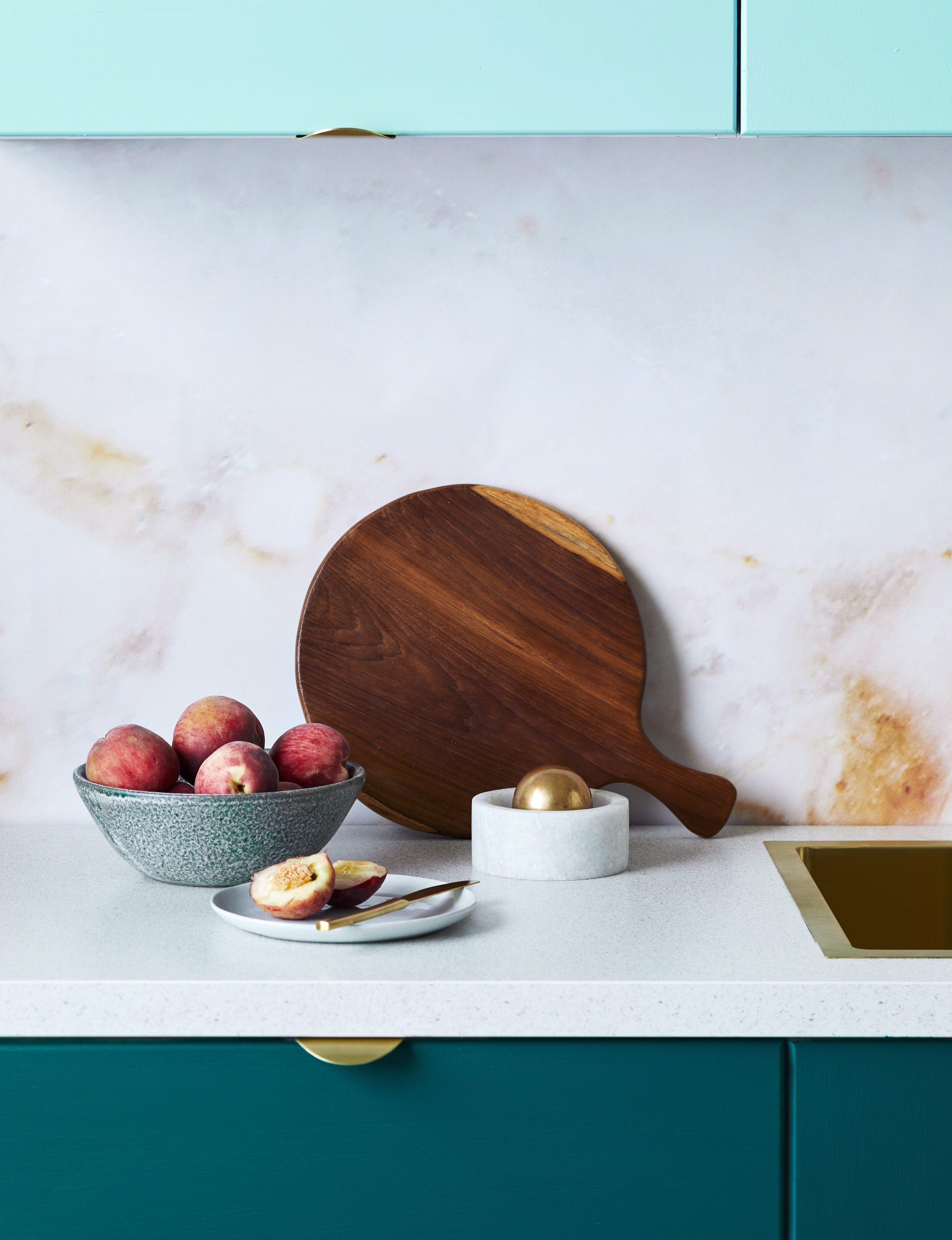
6. Everyday maintenance
Every home needs a daily tidy-up. Even 5-10 minutes a day makes a difference and, once your items have logical and practical homes, you’ll get faster. Choose a time that works for you – after school drop-off, in the evening, or before the TV gets turned on. Get everyone on board and have daily family tidy-ups.
7. Stay on top of paper
Loose papers have a way of creeping into our homes. Most of us don’t have any system for storing papers, so piles can build up very quickly. First, create a system and establish a place for mail. Then schedule a time each week to dedicate to sorting your papers. Be strict about dealing with them all at the assigned time, then reward your efforts afterwards.
- If you can’t avoid a small amount of clutter, try gathering items like keys, coins and sunglasses together on a beautiful tray or platter.
- Search pinterest for ways to keep cords, plugs and devices tidy – clever solutions range from bread-tag cord tidies to dedicated charging cupboards.
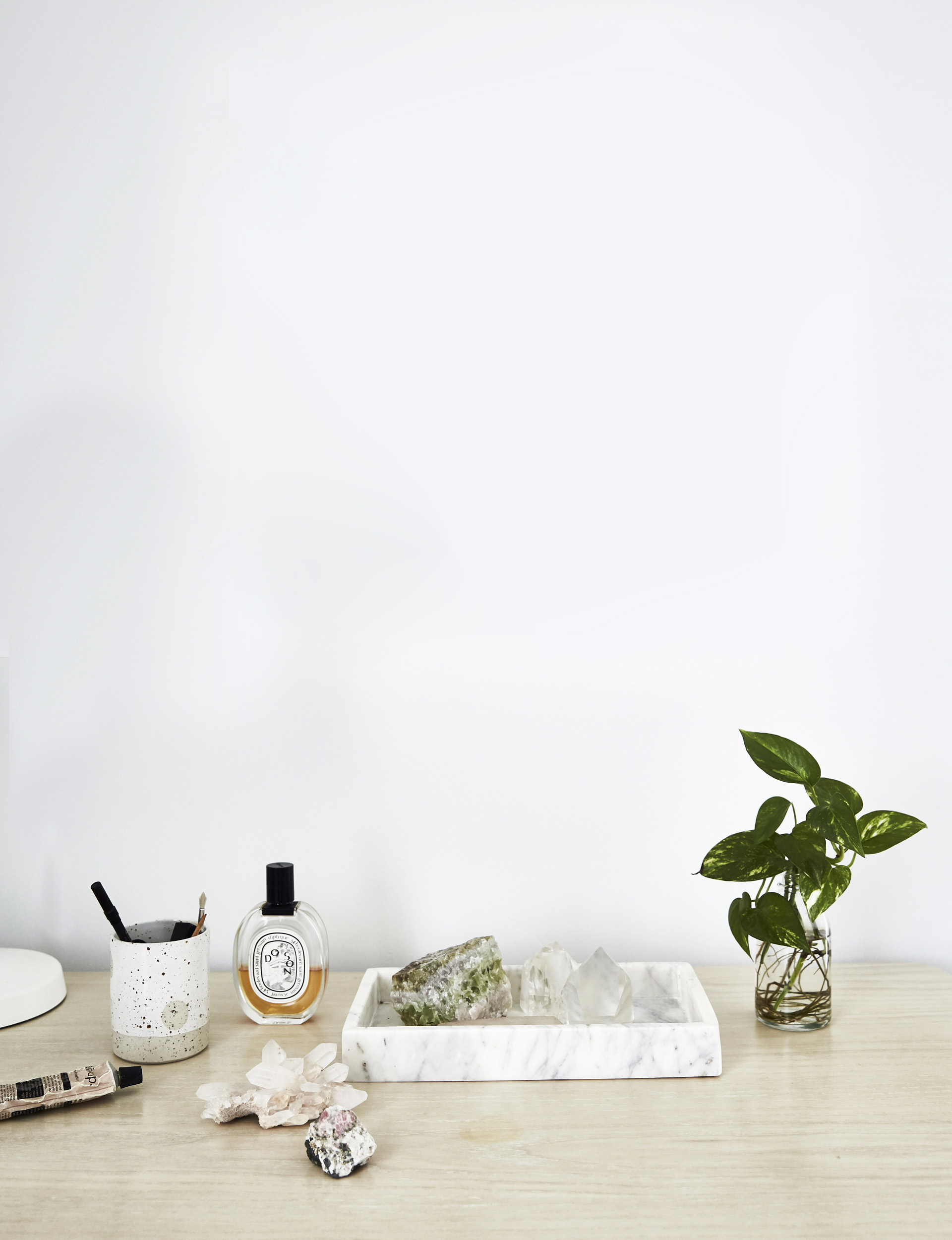
8. Create routines
Routines help everything run more smoothly because they remove the stress of thinking about what needs to happen next. If you follow the same sequence of tasks each morning, you’ll save yourself time and energy. These routines will take time to create, but the benefits of doing so include more energy for thinking about other stuff and a more relaxed household overall.
9. Think before you buy
When you declutter and reorganise your belongings, you will be more familiar with what you have, and therefore what you actually need. Before you buy that bright shiny thing that catches your eye as you walk past, ask yourself: “Do I love it? Will I use it/wear it?” Be honest. Get into the habit of taking a pause before you buy – you’ll be surprised at how often you decide to walk away.
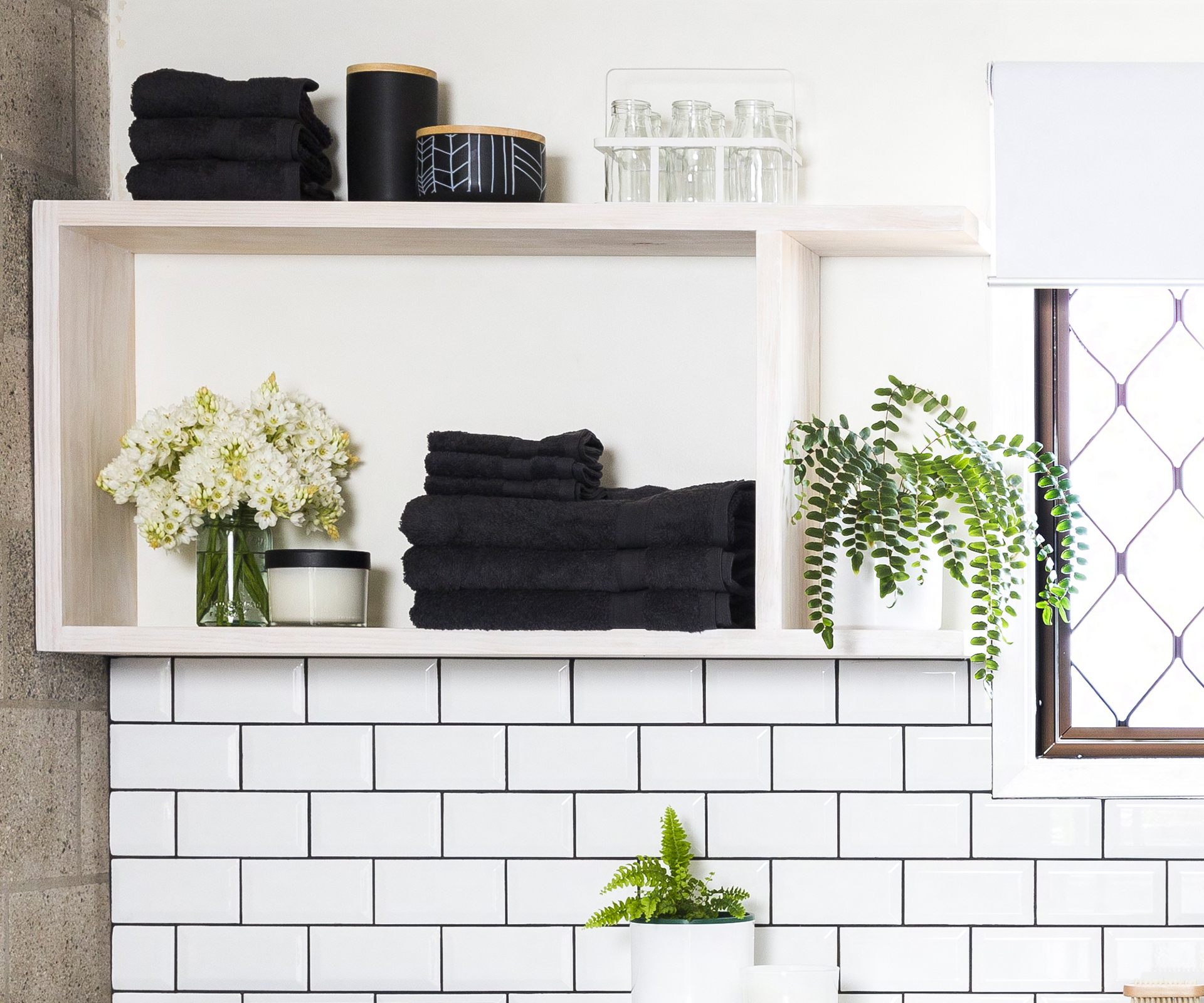
10. Set up a donation basket
When you decide you no longer want an item, place it straight into a donation basket rather than back in your closet. When the basket is full, pop it in your car and take it to a charity store. This is a great way to get kids into the habit of donating things when they have outgrown them, and is a reminder that moving items on and rehoming them with people who need them is something we should all do regularly.
Natalie Jane from Be Organised
Professional organising consultant Natalie Jane knows the power of good habits because she’s seen the amazing changes that can be achieved when people add them to their daily routine. “I have always had a passion for organising,” she says. “Even as a child I would clean and organise my room on a weekly basis – my parents told me I was born organised!”
Words by: Natalie Jane. Photography by: Bauer Syndication.
EXPERT PROJECTS

Create the home of your dreams with Shop Your Home and Garden
SHOP NOW











